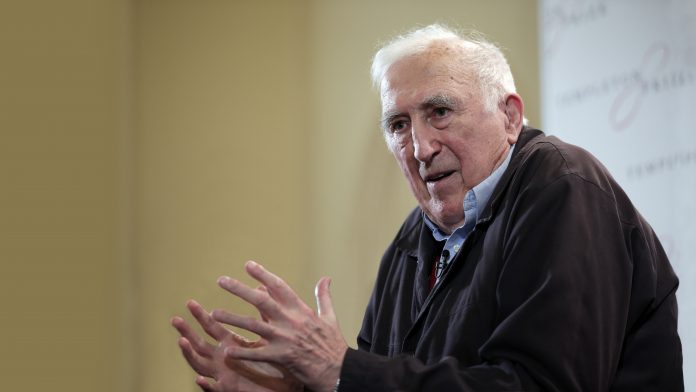Marlena Graves is the author of The Way Up Is Down: Finding Yourself by Forgetting Yourself (IVP, July 2020) and A Beautiful Disaster: Finding Hope in the Midst of Brokenness (Brazos Press, 2014). She lives with her husband and three daughters in the Toledo, Ohio area. The views expressed in this commentary are solely those of the author(s) and do not necessarily represent those of BCNN1.
L’Arche International recently published an internal report revealing the news that Jean Vanier, its founder, sexually abused women for decades. In the report, the leaders of L’Arche unequivocally condemned Vanier’s abusive behavior. They sought forgiveness from the victims while also lauding the victims’ courage to come forward and testify.
Along with many others, I was devastated by the news. After Vanier won the Templeton Prize, I contacted him about a possible interview. When his secretary was on vacation, he sent me a personal response that said, “From Jean, yes we can meet, tell me when you can come, peace.” Although I was never able to go, I cherished the invitation. I had been quoting Vanier in my writing for years. And in the seminary classes I taught, I repeatedly used Vanier as a role model of incarnational community and an exemplar of what it means to manifest Christ’s presence in the world.
As news about his abuse ricocheted across the globe, many of us took to social media to express our reactions and to collectively grieve. Many echoed Mark Galli’s question about sinful leaders: “What are we to make,” he writes, “of everything they taught, if their lives exhibited anything but what they taught?”
Others have opined that if we were more realistic about human nature, we wouldn’t be disappointed. “The lesson, surely,” Michael Coren tweeted, “is that nobody should be placed on such a pedestal.” Still others have wondered if we should have heroes at all.
They’re right, of course, but only in part. Scripture does tell us that “There is no one righteous, not even one” (Rom. 3:10). Hebrews 11 and other parts of the New and Old Testaments highlight people of faith with grievous sins and fatal flaws. So yes, God uses even the most broken among us. And yes, we have to be cautious about whom we venerate.
And yet, this language of “not putting people on pedestals” is often used to let people off the hook and soften their mistakes in the public eye. More importantly, this rhetoric often erodes our understanding of righteousness and the high calling to holiness. Scripture, experience, tradition, and reason demonstrate that some believers are indeed more righteous than others. Their private lives correspond to their public lives. What you see is what you get. They are honest, without guile, and unduplicitous. Their holiness is simple and uncomplicated.
Source: Christianity Today
All Content & Images are provided by the acknowledged source
